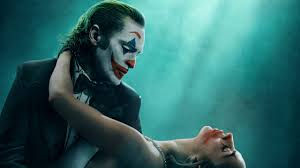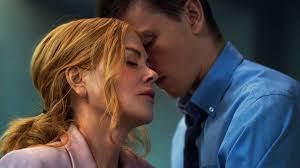Venice Film Festival: Joker: Folie à Deux,
- David Katz

- Sep 5, 2024
- 4 min read
Updated: Sep 23, 2024

First, he was shooting; and now, he sings. And Joaquin Phoenix, the actor behind him, is now heavily publicised for what you can metaphorically call sabotage, as reports swept the trades of him bailing from Todd Haynes’ new film at the last moment. We’re in the final days of the Venice competition, and again we have a Todd Phillips Joker film, here entitled Joker: Folie à Deux, intended to create a stir as the first effort in 2019 did.
The first Joker was a decent prestige film with something to say and a well-chosen manner to say it, misinterpreted by those looking to clown-paint it as an apologia for incels. And now Phillips has been granted a blank cheque to be even more ambitious, dragging classic comic book lore again into R-rated territory, to see if can withstand any sophistication.
So Martin Scorsese’s Taxi Driver and The King of Comedy are out as inspirations, with Phillips and co-writer Scott Silver taking notes this time for New Hollywood musicals like One From the Heart and All That Jazz, and the classic Hollywood musicals derived from Broadway shows that still underpin much of New York’s cultural heritage. Joker: Folie à Deux overall is a weak, deflating follow-up, but Phillips deserves credit for trying to tell a new story, and also self-referentially comment on the previous film’s financial over-performance and cultural impact.
Arthur Fleck (Phoenix), who adopted the “Joker” persona for a homicidal crime spree in the first film, is now in Arkham Asylum - the fabled, H.P. Lovecraft-referencing institution from the original Batman comics - awaiting his trial and almost-certain guilty verdict. But incarcerated, good behaviour allows him new privileges, so he meets the mysterious Lee (Lady GaGa), whose backstory is occluded, but becomes his biggest champion, lover and muse. With the actual character name seldom referenced, she evokes Harley Quinn from the previous DC films and media, and uses her ample vocal pipes to duet with Arthur/the Joker in performances of old jazz and pop songs that cement their chemistry and provide an outlet for his madness. Smiling inopportunely does bother people, but singing in public goes one further in being associated with an older definition of mental illness.
Whilst the musical set-pieces in particular divert, and the stage seems gradually set for the character to find his charismatic, and yes, murderous persona again - which, in a crime film, there is no shame in the audience wanting to see - Phillips can’t crack the ending, and the ghoulish make-up starts to peel off. Attempted topical references to America’s Capitol Building attack and the George Floyd protests feel shallow, and Phillips forgets an operatic story needs to flourish in its ending chorus and outro.
_____________________________________________
Dea Kulumbegashvili’s April was one of the undeniable highlights of the festival’s final stages, a counterpart to last year’s Evil Does Not Exist, from the Oscar winner Ryusuke Hamaguchi, in its shamelessness in being cryptic, and willingness to hold the audience in a state of narrative suspension.
Kulumbegashvili comes from Georgia, one of the most exciting regions for new world cinema right now, but she surprisingly evokes some of the older masters of art cinema, whose reputations are secure, but new directors working in their mode feel cautious to emulate. I’m talking about Tarkovsky, Kubrick and Carlos Reygadas; she loves her durational long takes, longer tracking shots and heavy, metaphysical themes.
April still balances striking film style with a fascinating, socially relevant character study; there is narrative progression, but it’s less interested in a tidy story, or even a fable, like her pandemic-era festival hit Beginning. The brilliant Ia Sukhitashvili is Nina, an obstetrician working in a small, but picturesque mountainous community outside of Tbilisi, and the film charts her principled but sometimes risky professional and social life.
The opening scenes show her failing to save the life of a couple’s baby during a routine birth procedure, bringing scrutiny for the first time on her professional competency. Despite being legal in the country, she is also subject to gossip that she performs unauthorised abortions to young girls in the community, as well as dispensing birth control.
Kulumbegashvili’s script is bold and direct in framing her as a saint, although one creating her own martyrdom in the country’s ultra-conservative culture, with the Orthodox Church having grown in influence since its independence in 1991.
The social criticism of this narrative strand is balanced with expressionist sequences where a female “creature”, resembling a life-size foetus, slowly stalks the film’s different natural and man-made environments. And the director deigns to show highway driving, or extreme weather conditions, in real-time, the long shots and often-symmetrical, square framing having a hypnotic effect and always creating tension or an uneasy sense of repose.
Perhaps the film needed further elements and ideas than what I’ve described to be even more effective, yet Kulumbegashvili’s technique, and her devotion in creating a fierce and passionately feminine form of cinema, provided some of the festival’s most exciting work overall.




Comments